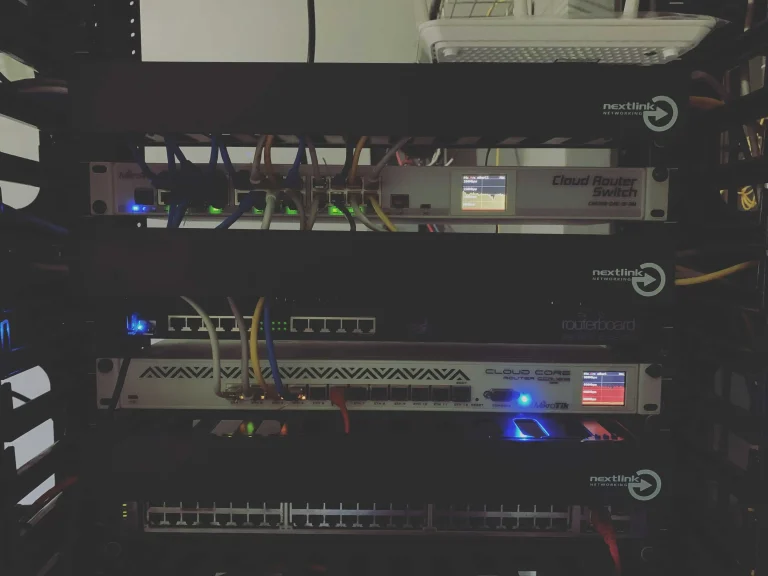As websites grow in traffic and complexity, basic shared hosting plans may no longer be sufficient to ensure reliable performance. This is where VPS hosting or Virtual Private Server hosting comes in as a powerful, flexible, and scalable solution.
In this article, we’ll walk you through everything you need to know about VPS hosting: what it is, how it works, and whether it’s the right choice for your needs.
Table of Contents
ToggleWhat is VPS Hosting?
VPS stands for Virtual Private Server. It is a type of web hosting where a physical server is divided into multiple virtual servers, each isolated from the others. Each VPS has its own operating system, storage, RAM, and CPU resources even though it shares the same physical hardware with other VPS users.
This setup gives users greater control and reliability than shared hosting, while being more affordable than a dedicated server.
How VPS Hosting Works
VPS hosting relies on a technology called virtualization, which uses software (called a hypervisor) to create several virtual instances on a single physical server. Each virtual instance behaves like an independent server, meaning:
- You can install your own operating system
- You can configure server settings
- Other users on the same machine cannot affect your performance or data
- In essence, VPS gives you the freedom of a dedicated server, at a fraction of the cost.
When Should You Choose VPS Hosting?
Not every website needs the power and flexibility of a Virtual Private Server. However, as your online presence expands, shared hosting may no longer provide the performance, reliability, or customization your project requires. VPS hosting becomes a logical upgrade when your current hosting environment can’t keep up with your technical demands or growing traffic.
Here are some common scenarios where switching to VPS hosting makes practical and strategic sense:
- Your website outgrows the limits of shared hosting
- You need better uptime and faster performance
- You want to run custom applications or use specific configurations
- You’re hosting multiple websites or projects under one account
- Security is a concern, and you need greater isolation from other users
It is commonly used for:
- Medium to high-traffic websites
- E-commerce stores
- Web applications or SaaS platforms
- Game servers
- Custom backend systems
- Benefits of VPS Hosting
When Should You Choose VPS Hosting?
Improved Performance
In a VPS environment, your website is allocated dedicated resources (like CPU, RAM, and storage), which are not shared with other users. This ensures consistent and reliable performance, even during peak traffic times.
Unlike shared hosting, where one high-traffic website can slow down others on the same server, VPS hosting keeps your environment isolated. That means faster page loading times, better uptime, and a more stable experience for your visitors. This is especially important for:
- E-commerce websites
- SaaS platforms
- Content-heavy websites (e.g. news sites or blogs with many visitors)
Also Read: Top 5 Best SSD VPS Hosting Solutions for Your Needs
Full Root Access
With full root access or administrator privileges, VPS hosting gives you complete control over your server environment.
You can:
- Install any operating system (Linux distributions like Ubuntu, CentOS, or Debian; or Windows Server)
- Run custom scripts and software that shared hosting does not support
- Modify server configurations (e.g., Apache, NGINX, PHP settings)
- Control security policies (e.g., firewall rules, SSH access)
This level of control is ideal for developers, agencies, or anyone running complex applications that require specific configurations or libraries.
Scalability
Most VPS hosting platforms offer easy scalability, allowing you to upgrade your server resources (CPU, RAM, disk space, bandwidth) as your needs grow, often without downtime.
This flexibility ensures that:
- You don’t overpay early on
- You can scale your hosting plan with minimal hassle
- Your website stays responsive even as traffic increases
- Cloud-based VPS platforms (like DigitalOcean, Linode, and AWS Lightsail) are especially well-suited for dynamic scaling.
Enhanced Security
Because each VPS instance is isolated from others, the security risks are significantly lower than with shared hosting.
In shared hosting, a vulnerability in one site can potentially affect all others on the same server. With VPS, your virtual server is walled off from others, reducing the likelihood of:
- Malware cross-contamination
- Resource hijacking (e.g., by crypto miners)
- Unauthorized access due to poor configurations in neighboring accounts
Additionally, since you manage your own security (or have it managed by the provider), you can:
- Configure your own firewall rules
- Install intrusion detection systems
- Use SSL certificates and enforce HTTPS
- Regularly update software and patch vulnerabilities
Should You Switch to VPS Hosting?
If you’re running a website or application that is growing in size and importance, and shared hosting can no longer keep up, then VPS hosting is likely the best next step. Choose VPS hosting if you need:
- Reliable performance under load
- More control over your environment
- Enhanced security
- Ability to install custom applications
However, if you’re just starting out with a personal blog or basic website, shared hosting may be sufficient for now.
Conclusion
VPS hosting is a flexible and powerful hosting solution that bridges the gap between shared and dedicated hosting. It’s an excellent choice for growing websites, online stores, and anyone who needs better control and performance without investing in a full dedicated server.
Whether you go with a managed or unmanaged VPS depends on your technical skills and available time. But either way, VPS provides the scalability, reliability, and independence that modern websites demand.
Need help choosing a VPS provider or configuring your first VPS instance? Let QUAPE know, we can guide you through every step.
- The Best VPS Hosting in Singapore: A Comprehensive Guide - April 16, 2025
- Windows VPS: Benefits and How to Choose for Your Business! - April 14, 2025
- What Is VPS Hosting? Benefits and When to Choose it! - April 11, 2025



